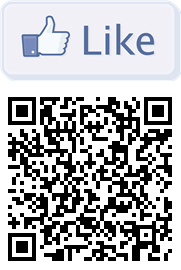Thursday, 9 June 2011
The Times fails to employ fact recognition
Mainstream journalism often fails to accurately report technology stories and the 'Facebook’s overnight switch sparks privacy row' article in today's Times if further evidence of this.
In the first two paragraphs there are no less than four inaccuracies. In fact, the first six words contain two inaccuracies:
The Times states: "Facebook secretly changed users’ privacy settings."
It's not correct to say that Facebook have changed users' privacy settings and it can't be secret because there has been no change. To be clear they have introduced new functionality and a new privacy option which has been switched by default - not the same thing. It's not even true to suggest the new facial recognition functionality has been rolled out secretly although Facebook admit they could have done more to publicise the rollout. Their PR firm says, "We should have been more clear with people during the roll-out process when this became available to them." However, the changes were announced by Facebook in December last year and widely reported by technology media like Mashable. The introduction of facial recognition technology was also announced as being available in 'most countries' yesterday on the official Facebook blog. Not exactly a secret then.
The second paragraph contains two inaccuracies in the one sentence:
The Times states: "However, Facebook does not give its 500 million users the option of not being tagged in this way. People who do not want their name attached to an image have to manually “untag” themselves after the pictures have been published online."
Firstly, Facebook has nearly 700 million users (source: Socialbakers) - 200 million people is somewhat inaccurate. More significantly because it's misleading for Facebook users is the statement that users have to 'manually "untag" themselves after the pictures have been published online'. This is not the case and never has been. If you don't wish to tagged photos of yourself to be visible to anyone other than yourself (thus effectively disabling tagging) you can do this by going to Account/Privacy Settings/Things that others share/Photos and videos your tagged in/Edit Settings and select Customise/Only Me.
To be clear there has been no change in who sees tagged photos. The change is that tags are now suggested to friends (and only friends). Just like before friends still have to confirm that the suggested tag/name is actually the person suggested. As before you can also remove tags of yourself from individual photos if you want to do this. A new privacy option has been introduced which enables users to choose whether this new suggestion feature can be used or not. As it automates what was previously a manual process it's not surprising that Facebook has enabled it by default. However, if you wish to switch if off you can do so by going to Account/Privacy Settings/Things that others share/Suggest photos of me to friends/Edit Settings and selecting Disable.
Therefore, in terms of privacy there has been no change which is not what readers of the article headlines with the words 'privacy row' are likely to assume. The introduction of facial recognition technology has automated part of the existing process and not 'changed users privacy settings' as stated.
In the first two paragraphs there are no less than four inaccuracies. In fact, the first six words contain two inaccuracies:
The Times states: "Facebook secretly changed users’ privacy settings."
It's not correct to say that Facebook have changed users' privacy settings and it can't be secret because there has been no change. To be clear they have introduced new functionality and a new privacy option which has been switched by default - not the same thing. It's not even true to suggest the new facial recognition functionality has been rolled out secretly although Facebook admit they could have done more to publicise the rollout. Their PR firm says, "We should have been more clear with people during the roll-out process when this became available to them." However, the changes were announced by Facebook in December last year and widely reported by technology media like Mashable. The introduction of facial recognition technology was also announced as being available in 'most countries' yesterday on the official Facebook blog. Not exactly a secret then.
The second paragraph contains two inaccuracies in the one sentence:
The Times states: "However, Facebook does not give its 500 million users the option of not being tagged in this way. People who do not want their name attached to an image have to manually “untag” themselves after the pictures have been published online."
Firstly, Facebook has nearly 700 million users (source: Socialbakers) - 200 million people is somewhat inaccurate. More significantly because it's misleading for Facebook users is the statement that users have to 'manually "untag" themselves after the pictures have been published online'. This is not the case and never has been. If you don't wish to tagged photos of yourself to be visible to anyone other than yourself (thus effectively disabling tagging) you can do this by going to Account/Privacy Settings/Things that others share/Photos and videos your tagged in/Edit Settings and select Customise/Only Me.
To be clear there has been no change in who sees tagged photos. The change is that tags are now suggested to friends (and only friends). Just like before friends still have to confirm that the suggested tag/name is actually the person suggested. As before you can also remove tags of yourself from individual photos if you want to do this. A new privacy option has been introduced which enables users to choose whether this new suggestion feature can be used or not. As it automates what was previously a manual process it's not surprising that Facebook has enabled it by default. However, if you wish to switch if off you can do so by going to Account/Privacy Settings/Things that others share/Suggest photos of me to friends/Edit Settings and selecting Disable.
Therefore, in terms of privacy there has been no change which is not what readers of the article headlines with the words 'privacy row' are likely to assume. The introduction of facial recognition technology has automated part of the existing process and not 'changed users privacy settings' as stated.
Subscribe to:
Post Comments (Atom)











3 comments:
Facebook does do itself any favours by not openly informing users about privacy changes before making them.
"you can do this [disable tagging] by going to Account/Privacy Settings/Things that others share/Photos and videos your tagged in/Edit Settings and select Customise/Only Me." - just drill down 5 levels into an deliberately confusing menu system to alter a setting that most people would never find without being told how to find it.
Maybe if Facebook were more open & clearer with their privacy settings people wouldn't be so suspicious when they change things.
It is indeed a tortuous route to make the change.
Good post. I think it's a pretty cool new feature myself and, as the option to remove tagging is there, I don't think there's a problem.
Crockett does have a point though; the privacy settings do offer a horrible user experience. They really should sort out the front end.
Post a Comment